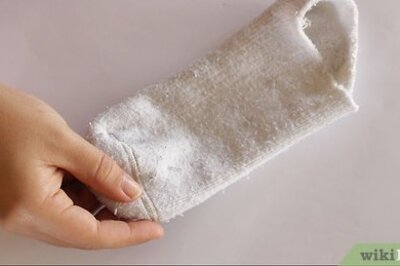
views
With longer days and stronger sunrays, sunscreen emerges as a vital skincare staple. Despite its importance, misconceptions around its usage and application are plenty. To start off, contrary to common belief, sunscreen isn’t just for summer – it’s a year-round necessity to shield the skin from sun damage.
If you’re feeling stuck when it comes to understanding and selecting the right sunscreen for your skin, don’t worry – we’ve got you covered. Let’s dive into the ultimate guide to ensure your skin stays healthy and protected all summer and beyond.
DECODING SUN RAYS
Sunlight contains ultraviolet (UV) radiation, including UVA, UVB, and UVC rays. While UVC is blocked by the ozone layer and poses minimal concern – UVA rays penetrate deeper into the skin, causing long-term damage such as premature aging, wrinkles, fine lines and dark spots. UVB rays primarily affect the outer skin layer, leading to sunburn, redness and even increasing skin cancer risk. Using a broad-spectrum sunscreen is thus crucial to protect against both types of rays. NIVEA, has introduced its globally loved sun protection range in India, offering innovative products designed to provide comprehensive protection and long-lasting care for your skin.
You may have heard of the three-finger rule for applying sunscreen, but here’s a lesser-known fact: after applying sunscreen, it’s crucial to wait 15-20 minutes for it to fully absorb into your skin and provide the necessary protection.
SPF STRENGTHS EXPLAINED
SPF, or sun protection factor, is your sunscreen’s superpower against the sun’s harmful UVB rays. It’s a measure of how well your sunscreen can protect you. Here’s a quick breakdown:
• SPF 15 blocks about 93% of UVB rays
• SPF 30 blocks about 97%
• SPF 50 blocks about 98%
Experts suggest opting for SPF 30 to 50, as they offer ample protection. Anything higher, like SPF 75 or 100, doesn’t provide significantly more protection and can give a false sense of security. So, don’t be swayed by a higher number thinking it automatically means better protection. The key is choosing the right SPF for your skin’s needs and ensuring you apply it generously and regularly – preferably every two hours or at least twice a day.
UNDERSTANDING SKIN TYPES
When shopping for sunscreen, understanding your skin type is crucial for optimal protection and comfort. For oily skin – choose a lightweight, non-greasy formula like NIVEA Sun UV Face Shine Control SPF 50. This sunscreen not only absorbs quickly and mattifies the skin but also contains Licochalcone, a potent antioxidant that helps prevent collagen loss and premature aging. If you have sensitive skin, opt for SPF 50, which is fragrance-free and designed to prevent skin irritation. With 0% stickiness, it doesn’t clog your pores whilst providing instant UVA and UVB protection without causing any discomfort.
EXPLORING FORMATS BASIS REQUIREMENT
When it comes to sun protection, there are various formats to consider based on your needs. If you’re active outdoors or enjoy water activities, a spray sunscreen is convenient and perfect for the Indian climate. Its quick-absorbing formula provides transparent application without a white cast, making re-application easy, especially for hard-to-reach areas like the shoulders and back.
For children aged over 3 years, SPF 50+ is ideal. Offering SPF 50 protection and a water-resistant formula – it’s perfect for outdoor playtime, pool days and summer sports.




















Comments
0 comment